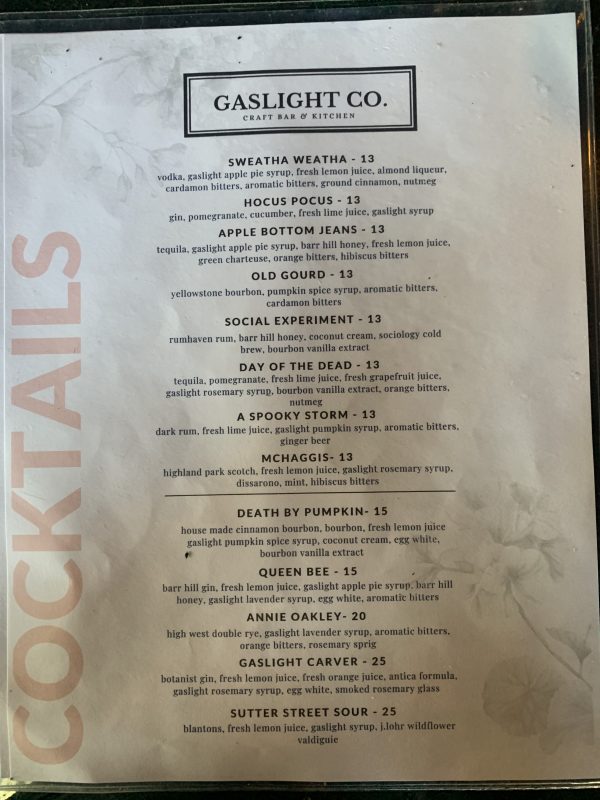Clear Shoe Bags for Travel 5 PCS, 15.7" x 11.8" Travel Shoe Bags for Packing, Waterproof Drawstring Travel Shoe Storage Bag, Travel Essentials for Men and Women
$5.39 (as of April 22, 2025 06:42 GMT +00:00 - More info)The recent actions of Red Lobster have left many former employees dissatisfied and seeking justice. The restaurant chain abruptly closed nearly 50 locations nationwide in May, followed by the filing of Chapter 11 bankruptcy. This led to around 300 layoffs in California alone, creating a wave of uncertainty and frustration among workers. A class-action lawsuit has been filed, claiming Red Lobster violated the Worker Adjustment and Retraining Notification (WARN) Act for failing to provide the required 60 days’ notice before the layoffs. The representative plaintiff, George Parker, seeks back wages and benefits as redress for this unforeseen job loss. As the legal battle unfolds, former employees are voicing their anger and disappointment over the handling of their sudden unemployment, highlighting the impact of the company’s failures on their lives and livelihoods. Have you ever wondered what happens behind the scenes when a big company like Red Lobster suddenly closes its doors, leaving employees jobless overnight? It’s a complex and often heart-wrenching situation, and this very scenario has recently become the center of a legal storm. Let’s dive into the details of what’s going on with Red Lobster and the lawsuit it’s facing over its handling of recent layoffs.

Get an Official Zagat Restaurant Guide
Red Lobster’s Recent Closures and Layoffs
In May 2024, Red Lobster abruptly closed nearly 50 locations nationwide without any prior announcement. The sudden closures left many employees and customers in shock.
Filing for Bankruptcy
Several days after the closures, Red Lobster filed for Chapter 11 bankruptcy. The company has been struggling with declining sales and issues such as the Ultimate Endless Shrimp promotion that didn’t go as planned last summer. These factors, among others, contributed to the company’s precarious financial situation.
Affected Locations and Workers
As part of the ongoing financial struggles, another 228 locations are facing closures due to leasing issues. Workers were reportedly just as surprised as the public by the sudden halt of operations. In California alone, around 300 workers were laid off without prior notice.
The Lawsuit: Allegations and Key Details
The sudden layoffs have led to a legal challenge against Red Lobster. Let’s explore the main points of the lawsuit and the allegations being made.
Violation of the WARN Act
According to the lawsuit, Red Lobster’s actions violated the Worker Adjustment and Retraining Notification (WARN) Act. This law requires companies to give affected workers at least 60 days’ notice before a closure or mass layoff. The purpose of the WARN Act is to provide employees with enough time to prepare for the impact of losing their jobs and to seek new employment or retraining opportunities.
National and California Class Action
The lawsuit aims to address the grievances of workers on both a national level and within California. The representative plaintiff is George Parker, a former employee from the Rohnert Park location in Sonoma County. Parker, along with other plaintiffs, is seeking 60 days’ worth of back wages and benefits ensured by the WARN Act.
Corporate Efforts and Inadequacies
Part of Red Lobster’s bankruptcy filing mentions that the company attempted to relocate employees to nearby restaurants. However, this solution wasn’t feasible for all the laid-off workers. The class-action lawsuit, filed by the Los Angeles-based law firm Melmed Law Group in Orlando bankruptcy court, contends that these efforts were insufficient.
Get an Official Zagat Restaurant Guide
Employee Reactions and Experiences
The timing and manner of the layoffs have left many former employees feeling betrayed and outraged. Here are some of the personal accounts shared by the affected workers.
Abrupt Notifications
Many employees woke up to find out they were out of a job through scheduling app notifications and texts from coworkers. This impersonal method of communication added insult to injury for many dedicated workers.
Hectic Shifts and Sudden Closures
Some employees were already enduring hectic work shifts, especially around busy periods like Mother’s Day. Former employees, such as Ramon Garcia from the Hamburg, California Red Lobster, recounted how they were given just three days to clean out the stores following the abrupt closures. This lack of considerate planning further fueled the frustration among the laid-off workforce.
High Turnover in Executive Positions
The service industry is notorious for high turnover rates, and Red Lobster is no exception. The company has experienced significant instability in its executive leadership, currently on its fourth CEO in three years. This lack of steady leadership likely contributed to the haphazard handling of the layoffs.
Red Lobster’s Official Statement and Public Response
Red Lobster attempted to address the situation through social media, but the responses from both former employees and customers reflect widespread dissatisfaction.
Social Media Posts
On May 21, 2024, Red Lobster’s official Instagram account posted a message acknowledging the difficulty of the recent closures and asking for public support. The post aimed to foster a sense of teamwork and resilience amid the challenges.
Reactions from Laid-Off Employees and Customers
The reaction was overwhelmingly negative. Many laid-off employees took to the comments to express their anger about the lack of direct communication and prior notice. One employee pointed out the company’s failure to address the workers directly before making a statement to the public. Likewise, disgruntled customers vowed not to dine there again, criticizing the company for its abrupt and insensitive handling of the layoffs.

Understanding the WARN Act
To fully grasp the legal implications of the lawsuit, let’s take a closer look at the Worker Adjustment and Retraining Notification (WARN) Act and its requirements.
Purpose of the WARN Act
The WARN Act is designed to offer protection to workers, their families, and communities by requiring employers to provide advance notice of significant layoffs or plant closures. This notification period allows employees sufficient time to seek alternative employment or retraining opportunities.
Key Provisions of the WARN Act
Here’s a summary table of the key provisions under the WARN Act:
| Provision | Details |
|---|---|
| Advance Notice | Companies must provide at least 60 days’ notice to affected employees before a mass layoff or closure. |
| Covered Employers | Applies to businesses with 100 or more full-time employees. |
| Affected Employees | Full-time employees who face job loss due to layoffs or plant closures. |
| Exceptions | Situations involving unforeseeable business circumstances, natural disasters, or if the company is actively seeking capital are some exceptions to the notice requirement. |
| Penalties for Violation | Employers failing to provide the required notice may be liable for back pay and benefits for each affected employee for the notice period (up to 60 days). |
The lawsuit claims that Red Lobster did not comply with these requirements, leading to potential legal and financial repercussions.
Implications for Red Lobster and Its Employees
The outcome of this lawsuit could have significant implications for both Red Lobster and its laid-off employees.
Potential Financial Liabilities
If the court finds Red Lobster in violation of the WARN Act, the company may face substantial penalties, including paying back wages and benefits to the affected employees. This financial liability could further strain the company’s already precarious financial situation.
Impact on Employee Morale and Corporate Reputation
The manner in which the layoffs were handled has already damaged employee morale and the company’s reputation. A legal ruling against Red Lobster could exacerbate these issues, making it even more challenging for the company to rebuild trust and retain its remaining workforce.
Lessons Learned for Other Companies
While the situation at Red Lobster is unfortunate, it provides valuable lessons for other companies on the importance of handling layoffs with transparency and compassion.
Importance of Advance Notice
Providing advance notice of layoffs not only complies with legal requirements but also demonstrates respect and consideration for employees. Clear and timely communication can help mitigate the negative impact on workers and foster goodwill.
Compassionate Communication
How a company communicates during difficult times speaks volumes about its values and culture. Ensuring that employees receive news directly from the company, rather than through impersonal notifications, can make a significant difference in how the situation is perceived and managed.
Leadership Stability
Consistent and stable leadership is crucial in navigating challenging situations. Companies with frequent changes in executive positions may struggle to maintain focus and provide steady guidance during turbulent times.
Conclusion: Moving Forward Post-Lawsuit
The lawsuit against Red Lobster underscores the importance of adhering to legal requirements and treating employees with fairness and respect. Whether you’re an employee, a customer, or a company leader, there are key takeaways from this situation.
For Employees
If you find yourself in a similar situation, know your rights under the WARN Act and seek legal advice if necessary. Additionally, use such experiences to advocate for better communication and support within your workplace.
For Companies
Prioritize transparent and compassionate layoffs management to maintain employee trust and minimize potential legal issues. Take the opportunity to reflect on your company’s internal practices and strive for improvements in leadership stability and employee relations.
For Customers
Your support and feedback can influence how companies handle their internal challenges. Voicing your concerns can drive companies to adopt better practices and ensure that they treat their employees with the respect and fairness they deserve.
By learning from Red Lobster’s unfortunate situation, both companies and employees can strive for a more transparent, supportive, and legally compliant work environment.
Get an Official Zagat Restaurant Guide






